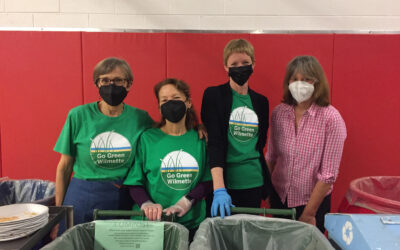The best option always for food waste is to COMPOST it. Composting food waste creates fertilizer to be used in your garden, improves your soil and increases drought resistance. However, not everyone has a yard and some of us don’t have the time or inclination to manage our food scraps by composting. If this is the case, you might consider checking to see if your area has a local business that will provide you with a small compost container and pick it up on a weekly, biweekly, or monthly basis. If that is not convenient or is not an option, the best option for food waste is to put your food scraps down the sink into the disposal. Why? Food scraps placed in the garbage and carried to the landfill decompose and produce methane gas, a greenhouse gas which is far more potent that carbon dioxide. Landfills do have methods to capture these gasses but they are not nearly as efficient as the methods used by wastewater treatment plants. Food scraps that are processed through the disposal travel with the wastewater to the treatment plants where anaerobic digesters capture the methane gas produced during decomposition and convert it to electricity or biofuels.
Learn more by reading this article in The Stanford Magazine

